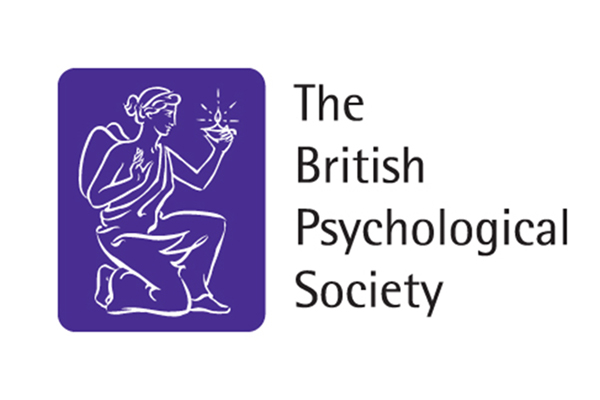Module Overview
This module provides students with the opportunity to demonstrate their abilities to conduct and report on a doctoral level research project which makes an original contribution to knowledge in the field of clinical psychology.
Students are expected to learn to scrutinise data appropriate to their enquiry, analyse the data using suitable quantitative and/or qualitative methods, discuss and present their findings in a scholarly style, reflect on their research experience in a structured format, and condense their research into an academic paper intended for submission to a named peer-reviewed journal. Trainees also develop broader dissemination skills and are required to create a conference style poster.
Module Overview
This module is designed to introduce students to the theoretical foundations and key skills that will be needed for the first clinical placement. There is a particular emphasis on establishing an understanding of, and competences in, assessing and formulating clinical casework from a Cognitive Behavioural Therapy (CBT) perspective and introducing students to alternative Evidence-Based Practice (EBP) models.
Module Overview
This module is designed to consolidate the transferable skill of forging close theory-practice links and adding the core competence of Cognitive Behavioural Therapy (CBT) intervention to those of assessment, formulation and communication. The module is closely linked to CPS and TWI with the emphasis shifting from assessment and formulation to applying their results to individual client interventions as the placement progresses and the trainee's skills develop.
Module Overview
This module introduces a developmental perspective that tracks an individual across the lifespan, taking account of the diversity of different developmental trajectories, and looks to consolidate knowledge and skills acquired in previous modules by framing these within the evolving challenges faced by individuals as they progress from birth to old age. The module is designed to complement the adult focus of CPS and TWI by emphasising common clinical problem presentations of infants, children, adolescents and older adults.
Module Overview
The focus of this module is the development of skills and applying clinical psychology expertise across the human life span and spectrum of diversity, thereby complementing the taught LPD module.
During second year placements trainees normally work in two different service settings and have the chance to extend the knowledge and competences acquired in the Foundation Placement module (IPA/B) through work with services dedicated to different age groups, clients with divergent developmental pathways and those with disabilities. In addition, students can develop competences in relation to people who present with more complex clinical problems and/or circumstances where greater consideration has to be given to intervening with couples, families, groups and indirectly through others.
This module aims to provide students with opportunities to work in the NHS and in other complex organisations, such as schools, social services, residential care and institutions to develop proficient knowledge of specialised interventions for targeted client groups.
Module Overview
This module looks to complement the taught Integration and SIM module in the second year with an emphasis on acquiring skill in an evidence-based approach other than generic Cognitive Behavioural Therapy. The aim is for students to select a specialist area in which to further their skills, knowledge, and experience.
Students on this placement have the chance to develop expertise either in a specialised approach and/or a new area, or with a specialised client group or service setting that they intend to work with once qualified. In addition, this module aims to ensure that students have acquired all the skills and competences needed to complete the requirements for registration with the HPC and eligibility to be a Chartered Clinical Psychologist.
Module Overview
This module looks to complement the taught Integration and SIM module in the second year with an emphasis on acquiring skill in an evidence-based approach other than generic Cognitive Behavioural Therapy. The aim is for students to select a specialist area in which to further their skills, knowledge, and experience.
Students on this placement have the chance to develop expertise either in a specialised approach and/or a new area, or with a specialised client group or service setting that they intend to work with once qualified. In addition, this module aims to ensure that students have acquired all the skills and competences needed to complete the requirements for registration with the HPC and eligibility to be a Chartered Clinical Psychologist.
Module Overview
This module looks to complement the taught Integration and SIM module in the second year with an emphasis on acquiring skill in an evidence-based approach other than generic Cognitive Behavioural Therapy. The aim is for students to select a specialist area in which to further their skills, knowledge, and experience.
Students on this placement have the chance to develop expertise either in a specialised approach and/or a new area, or with a specialised client group or service setting that they intend to work with once qualified. In addition, this module aims to ensure that students have acquired all the skills and competences needed to complete the requirements for registration with the HPC and eligibility to be a Chartered Clinical Psychologist.
Module Overview
In this module students undertake a small-scale research project (SSRP), such as a service evaluation, audit, single-case design report, or other small-scale research project related to clinical psychology research and practice. Trainees demonstrate their ability to effectively disseminate their findings by creating and presenting a research poster based on their SSRP. Trainees will gain the experience of disseminating research at a knowledge-exchange event, to an audience of invited professionals, peers, and members of the public. The SSRP poster is subsequently included as an appendix in the main research project portfolio (RAP ).
Module Overview
This module aims to lay the foundation for the research component of the programme by introducing students to: the most influential study designs used in clinical psychology, theoretical and practical aspects of systematically searching relevant literature to answer specific clinical and research questions, and conducting applied research in healthcare settings.
In the first part of the module, students develop a defensible plan for a doctoral-level research project, acquire the skill of writing formal research proposals for university and/or NHS ethics committees (taking due account of the principles of ethical research and the requirements of the HCPC, BPS and other bodies as appropriate) and develop their literature searching and synthesis skills.
In the second part of the module, students further their research project by undertaking a systematic review of the literature in their chosen area of interest. Successful completion is designed to result in a publication-ready paper which becomes a component of the final research project portfolio (RAP).
This module is the first step students take toward the completion of their research project portfolio and submission-ready journal papers.
Module Overview
Knowledge and understanding of:
• Different models of integration.
• Change mechanisms: why people change or do not respond to intervention
• Trans-theoretical and common factors in assessment, formulation and intervention.
• Specialist application of an alternative therapeutic model (non-mainstream CBT).
• Generic, model-specific, problem-specific and meta competences in therapeutic practice.
Intellectual skills – the ability to:
• Use a doctoral level understanding of the core principles of clinical psychology to integrate theory and practice.
• Create new knowledge out of this integration which can be effectively communicated to other professionals.
• The ability to reflect critically on the new knowledge generated so combining the skills of the reflective practitioner and the scientist-practitioner.
Professional and Practical skills – the ability to:
• Apply a theoretical approach alternative to mainstream CBT in all aspects of clinical practice.
• Shape practice combining CBT, alternative, integrative and trans-theoretical models to extend the range of services to people hitherto excluded.
• Approach novel situations creatively so moving beyond specific guidelines and protocols.
• Develop new assessment, formulation and intervention skills.
Transferable skills – the ability to:
• Use doctoral level written skills to communicate complex alternative, integrative and trans-theoretical models effectively to colleagues and other professionals.
• The ability to discern the active ingredients and common factors in models of change.
• Critique, synthesise and generate alternative, integrative and trans-theoretical models which can be applied across settings and client groups.
Module Overview
This module changes focus from the individual to the individual within a couple, family or other small group system and aims to introduce students to the theoretical foundations of working with larger modules, such as families, couples and groups.
Students develop advanced skills in assessing, formulating and intervening using secondary and indirect resources i.e. family members, care staff and multi-disciplinary teams. The main problems for which such interventions may be carried out will be considered.
Students consolidate and develop their ability to critically apply the integrative and trans-theoretical frameworks acquired in previous modules to work with clients in more complex contexts (such as multi agency work) in order to shape practice and provide services to people hitherto excluded because direct or individual interventions are less effective or make less efficient use of resources.
By building on skills developed over the course of the programme so far students further strengthen their skills as reflective scientist-practitioners grappling with the challenges offered by a range of learning methods / ways of working. Students are encouraged to draw on their own experiences of working in small groups and in clinical practice to enhance their critical and reflective thinking.
Module Overview
This module changes focus from the individual to the individual within a couple, family or other small group system and introduces students to the theoretical foundations of working with larger modules, such as families, couples and groups. Students consider the nature of problems for which multi-person interventions are most appropriate. The module progresses to the application of clinical psychology theory and practice to develop the skills of assessing, formulating and intervening indirectly through third parties such as other family members, care staff, and multi-disciplinary teams.
Module Overview
This module is designed to provides students with the theoretical foundations to understand the phenomenology of problems commonly referred to clinical psychology services. In this module students develop the key skills for planning and delivering Cognitive Behavioural Therapy (CBT) interventions with individual clients, based specifically on models of engagement and change of CBT and other psychological Evidence-Based Practice models.












